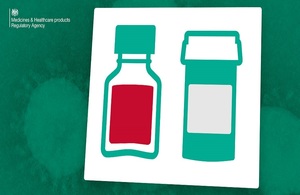Green light for COVID-19 trial recruitment
News story
The MHRA has approved the recruitment of further participants for a clinical trial by the University of Oxford

The MHRA has approved the recruitment of further participants for a clinical trial investigating hydroxychloroquine in prevention of COVID-19, by the University of Oxford.
Dr Siu Ping Lam, Director of Licensing at the MHRA, said:
We have reviewed the University of Oxford’s request to recommence recruitment for the ‘COPCOV’ trial, investigating the use of hydroxychloroquine in the prevention of COVID-19.
After analysing the additional risk mitigations and consulting the Commission on Human Medicines, we have given the clinical trial the green light to recruit more participants.
Participant safety is our priority, so we will continue to monitor the trial to ensure ongoing appropriate measures are in place to maintain continued high levels of safety.
The MHRA received a request from the University of Oxford, on 17 June, to recommence recruitment to the ‘COPCOV’ trial investigating hydroxychloroquine in the prevention of COVID-19.
The submitted justifications and supporting information were reviewed by the MHRA, with independent advice obtained from the Commission on Human Medicines. On 26 June it was agreed that sufficient measures had been taken to support the safe recruitment of further participants.
The decision follows the MHRA’s instructions, on 8 June, to UK clinical triallists using hydroxychloroquine to treat or prevent coronavirus (COVID-19) to suspend recruitment of participants until further data, which justifies continuation, have been provided, and any additional safety measures have been implemented.
Published 26 June 2020